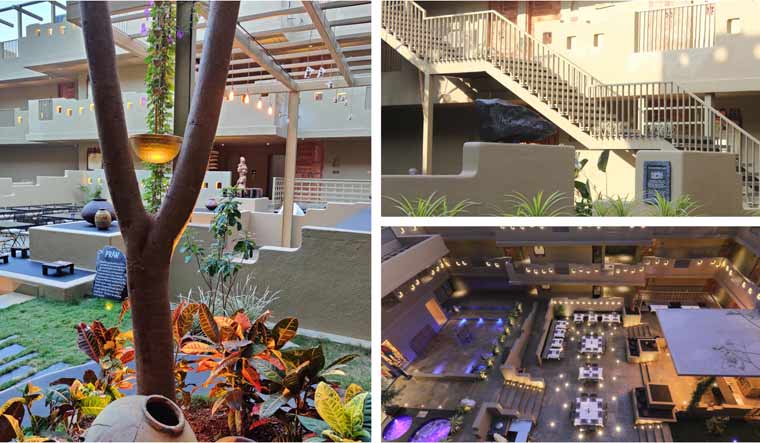The tourism industry was one of the worst-hit sectors during the pandemic. But even in the midst of crisis, there are those who try to tread a new path and explore options.
Experts say that experiential tourism is the way forward, and many properties in Goa, like 3102bce, a designer boutique resort, are gaining traction post Covid. It is more than a resort—it is also an extraordinary tribute to the legacy of the Indus-Saraswati civilisation.
Since it started operations just before the Covid-19 outbreak, the property was only able to serve domestic customers. “We now have a visitor ratio of 90:10, which means that 90 per cent of the visitors are from India, and 10 per cent are from other countries,” said Ishaan Bhutoria, operation director of the property group.
Despite the fact that Goa is presently experiencing its off-season, Bhutoria was fascinated by the level of interest in the Goan hospitality industry. “I expected hotel occupancy to be around 60 per cent during the off-season, but to my surprise, the facility is currently at over 90 per cent,” he said.
The key factor that makes a resort stand out is that urban dwellers nowadays are in search of immersive experiences. “Today’s travellers expect more than just five-star accommodations; they like being immersed in the natural beauty, cerebral connect and ethnic flavours even as they indulge in delectable cuisines they have not experienced much. They are mostly interested in expeditions and experiences, the lesser-known and unknown places and legends, and developing a deeper connection with local culture and nature,” said Bhutoria.
Speaking about choosing a rather unusual name for the resort, Bhutoria said it is a tribute to India's culture and philiosphy. “Inspired by the prehistoric Vedic era, our designer boutique resort offers an experiential experience that lies beyond the boundaries of an average hospitality experience. The Indus-Saraswati civilisation-themed resort pays homage to the sublime culture, philosophy and legacy of India’s ‘itihas’. This enabled us to provide our guests that cerebral link to the timeless heritage of this ancient culture,” he said. He added: “Nestled in the proximity of Vagator, Mini-Vagator and Anjuna beach of North Goa it is also very strategically located.”
To provide an immersive experience and evoke the purity and grace of a bygone era, the architectural team took cues from the Indus-Saraswati culture. The rooms are adorned with replicas of figurines uncovered during archaeological excavations. While we ensured that all the rooms feature modern facilities and comforts, the interiors were designed to give the impression of being transported to the ancient world, he said. The resort was given a rustic feel throughout, with Harappa-style city walls and a Great Bath-style structure right in the middle. “Each of the 37 rooms of the resort are associated with seven Chakras that hold the key to our physical well-being, thus a guest is never short of a new experience,” Bhutoria added.
Hailing from a family of hoteliers, Bhutoria takes inspiration from his father, Rahul Bhutoria, who has already created a name for himself in the field with ‘The Lindsay Group’.



